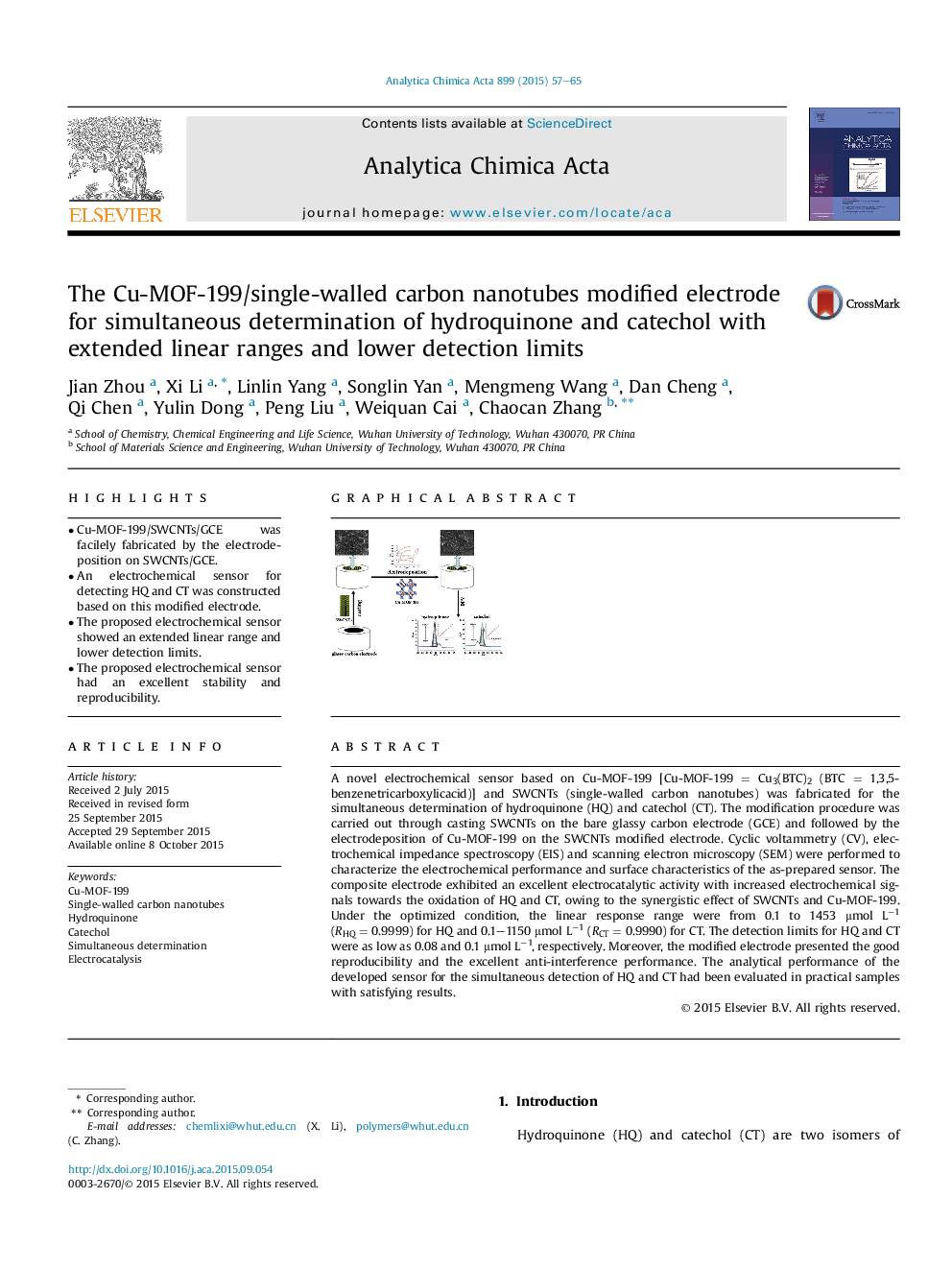| کد مقاله | کد نشریه | سال انتشار | مقاله انگلیسی | نسخه تمام متن |
|---|---|---|---|---|
| 1163129 | 1490933 | 2015 | 9 صفحه PDF | دانلود رایگان |

• Cu-MOF-199/SWCNTs/GCE was facilely fabricated by the electrodeposition on SWCNTs/GCE.
• An electrochemical sensor for detecting HQ and CT was constructed based on this modified electrode.
• The proposed electrochemical sensor showed an extended linear range and lower detection limits.
• The proposed electrochemical sensor had an excellent stability and reproducibility.
A novel electrochemical sensor based on Cu-MOF-199 [Cu-MOF-199 = Cu3(BTC)2 (BTC = 1,3,5-benzenetricarboxylicacid)] and SWCNTs (single-walled carbon nanotubes) was fabricated for the simultaneous determination of hydroquinone (HQ) and catechol (CT). The modification procedure was carried out through casting SWCNTs on the bare glassy carbon electrode (GCE) and followed by the electrodeposition of Cu-MOF-199 on the SWCNTs modified electrode. Cyclic voltammetry (CV), electrochemical impedance spectroscopy (EIS) and scanning electron microscopy (SEM) were performed to characterize the electrochemical performance and surface characteristics of the as-prepared sensor. The composite electrode exhibited an excellent electrocatalytic activity with increased electrochemical signals towards the oxidation of HQ and CT, owing to the synergistic effect of SWCNTs and Cu-MOF-199. Under the optimized condition, the linear response range were from 0.1 to 1453 μmol L−1 (RHQ = 0.9999) for HQ and 0.1–1150 μmol L−1 (RCT = 0.9990) for CT. The detection limits for HQ and CT were as low as 0.08 and 0.1 μmol L−1, respectively. Moreover, the modified electrode presented the good reproducibility and the excellent anti-interference performance. The analytical performance of the developed sensor for the simultaneous detection of HQ and CT had been evaluated in practical samples with satisfying results.
Figure optionsDownload as PowerPoint slide
Journal: Analytica Chimica Acta - Volume 899, 29 October 2015, Pages 57–65